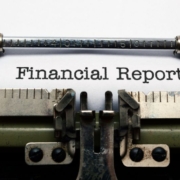What is Financial Reporting?
In just about any industry, financial reporting will be crucial. This is the disclosure of the business’s finances and related information and is usually given to management as well as stakeholders. The financial reporting covers how the business is performing, usually on a quarterly or annual basis. There is certain information that needs to be included in the financial reporting and various guidelines that should be followed when creating the report.
Why is Financial Reporting Important?
Financial reporting is required by just about every stakeholder, and there are multiple reasons why they might need it. Some of the reasons it may be important will include the following.
- Required by regulations – Local regulations and statues may require companies to provide financial reporting on an annual or quarterly basis. In these cases, the financial reporting will need to be published so anyone can read it.
- Helps During Audits – When the finances of a business need to be audited, a financial report is required. This allows the auditors to get a clear overview of the business’s finances. They may need to access prior financial reports, not just the most current one.
- Assists with Financial Planning – The financial report provides an overview of the company’s finances that can be useful when making decisions. It can also show a clear pattern based on changes made when the past few financial reports are compared together.
- Used to Raise Capital – Businesses that need a loan or to raise capital via investors will need to provide the investors or the bank with their financial reports. This allows potential lenders or investors to do their due diligence before giving the company money.
What to Include in a Financial Report
A financial report is typically a very long document that includes a variety of information about the company’s finances. There are certain parts of the financial document that must be included, though other documents can be included as well. Some of the crucial documents to include are the following.
- Statement of Financial Position – This part is an overview of the company’s finances at the end of the quarter or the year. It includes assets, liabilities, equity, and more.
- Profit and Loss Report – This is a more detailed part that covers the income, expenses, and profits or losses for the period of time covered in the financial report. This should include any sales or expenses during that period of time.
- Changes in Equity – This part covers the changes in equity for the company during the financial reporting time period. Any changes in equity need to be in this section.
- Cash Flow Statement – This is a report covering where the money came from and went during the quarter or year. More detailed than the profits and loss report, this covers investments by the business, sources of cash, and any other ways money was brought into the business or used by the business.
Objectives of Financial Reporting
When creating a financial report, it’s a good idea to keep the objectives of the report in mind. It should be organized, so anyone who needs to view it can find the information they need quickly and easily. The following objectives should be considered when creating every financial report.
- Provide Management with Financial Information – Management for the company will use the financial report to plan, analyze previous changes made, and make decisions for going forward. They will need to be able to see an overview of the finances with respect to the decisions they’ll be making.
- Provide Investors or Creditors with Financial Information – Any investors or creditors will want to review the financial reporting to ensure the business is still bringing in profits and able to meet any obligations. They may also review prior financial reports before offering financing to the business to ensure they will receive their money back.
- Provide Stakeholders with Information – Stakeholders will want to make sure the business is operating as intended and that there are no major issues they should be aware of. Much of the information they’ll want to review is covered in the financial report.
- Provide Auditors with Information – When the business needs to be audited, the financial report should assist the auditors in finding the information they need. This can help the audit proceed faster and minimize the potential for any issues.
Across industries, businesses need to make sure they create financial reports on a regular basis. These reports are used in a variety of ways, so it is critical they include everything that might be needed by the people who use it. This way, the financial report can become an asset the company can use for management, lenders, governmental regulations, and more to show how the company is doing throughout the quarter or year.
- About the Author
- Latest Posts
Claudia is a senior content writer with an insatiable wanderlust and a passion for exploring the world of business. Armed with a pen and a laptop, she roams the globe, capturing the essence of diverse cultures while delving into a myriad of business-related subjects.











